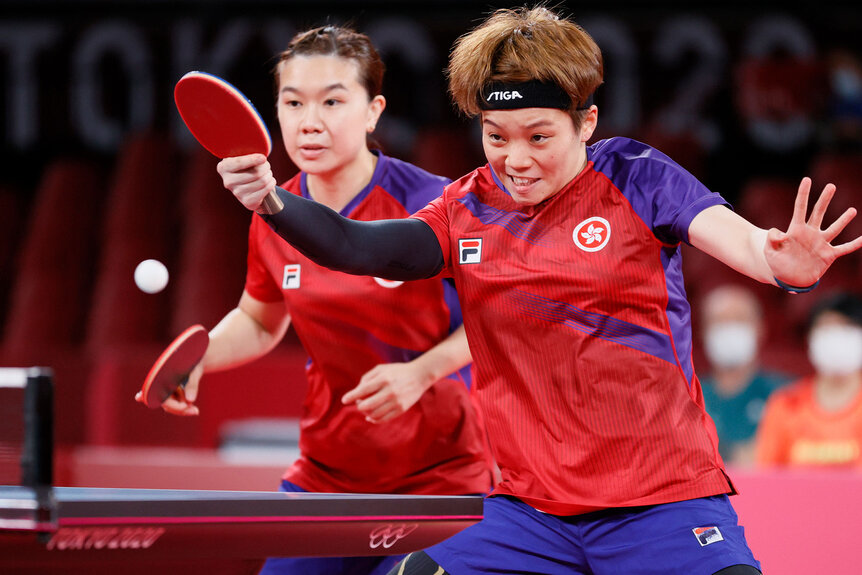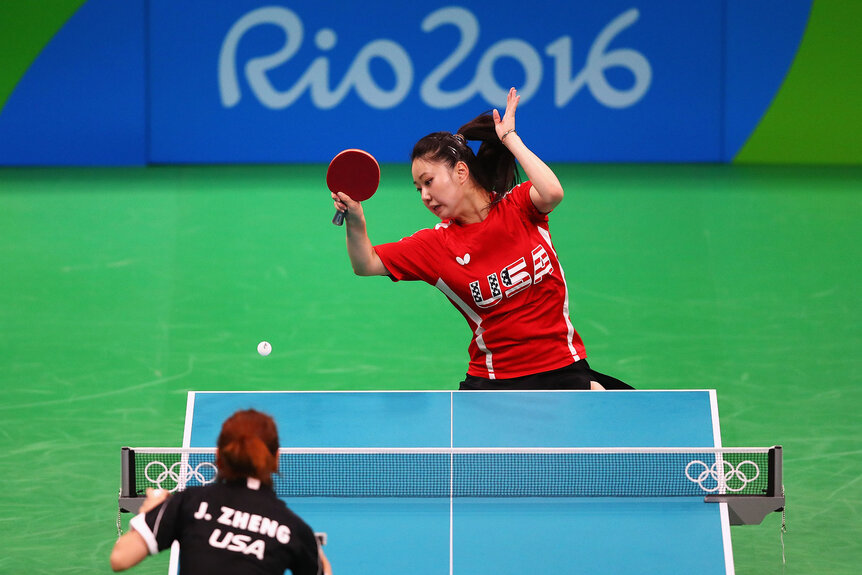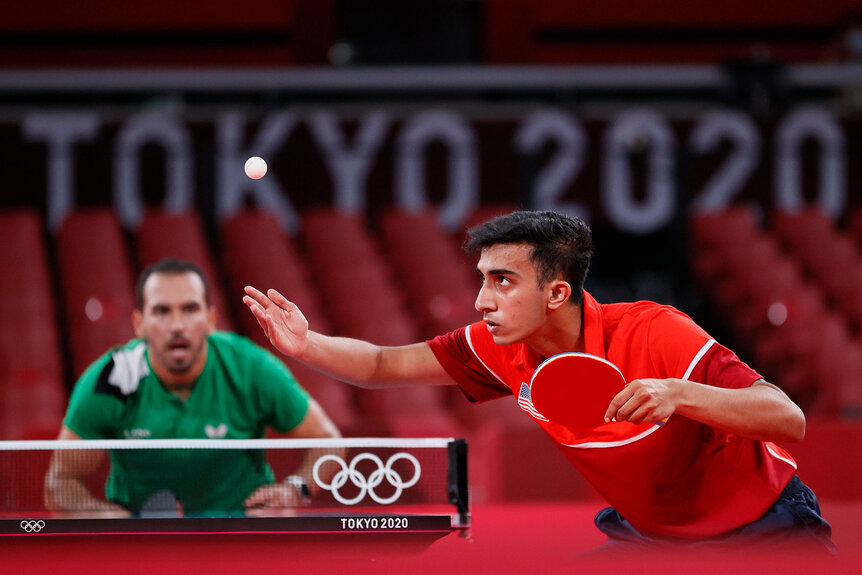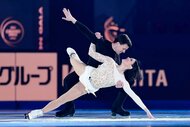Table Tennis or Ping Pong? Whatever You Call It, Here's Everything to Know about the Olympic Sport
From debut triumphs to historic upsets, Olympic table tennis has showcased the sport's appeal and thrilling competitive spirit.

As the sun shines bright this summer, many find themselves picking up paddles and engaging in a spirited game of table tennis—or is it ping pong?
Amid the laughter and swift volleys of the ball, a common question arises: what’s the difference between the two names? Whether you’re a backyard enthusiast or a serious competitor, understanding the nuances between the names table tennis and ping pong can enhance your game and settle the age-old debate.
Read on to uncover the origins of this interesting name game.
Why Is Table Tennis Also Called Ping Pong?
Table tennis' evolution dates back to late 19th century in England, though it would go through several iterations before arriving at the style of game we know today. One early version developed by the game maker Jacques of London was called “Gossima” in the 1890s, which used a cork ball and longer drum rackets, according to the International Table Tennis Federation. The cork balls didn't have great bounce to them (and other versions of the game which used rubber balls had entirely too much bounce,) but around the year 1900 came the introduction of the celluloid balls used today, which necessitated modifications to the rackets to accommodate the new playing dynamics.
RELATED: K-Pop Superstar Jin to Carry Olympic Torch in France Ahead of 2024 Summer Games
According to the International Table Tennis Foundation and author Steve Grant, the name of “ping pong” can actually be attributed to an 1884 song by Harry Dacre. Since the new celluloid balls mimicked the "ping" and "pong" sound, that became an alternate name for the game, with Jacques marketing it as "Gossima or Ping Pong," then "Ping Pong or Gossima," before finally just "Ping Pong."
In 1901, two rival organizations were formed in England: the Tennis Table Association and the Ping Pong Association. By this point, "Ping Pong" had been trademarked by Hamley Brothers in England and they "rigorously enforced the Ping Pong trademark, requiring use of their Ping Pong equipment in Ping Pong tournaments and clubs," according the International Table Tennis Federation history of the game. As the federation noted, "Eventually it became clear that for the sport to move forward, the commercial ties had to be severed," and the ITTF was formed in 1926 as the governing body of the fledgling sport.
While ping pong and table tennis are fundamentally the same sport, there are notable differences in rules and gameplay. The International Table Tennis Federation features strict, standardized rules: matches are typically played to 11 points with a two-point lead, serves must be tossed at least 16 cm in the air, and equipment must meet specific standards.
In contrast, often played recreationally, ping pong has more relaxed and varied rules. Games might be played to different point totals, serves may not require a toss, and equipment, including non-standard paddles and tables, can vary widely.
While the names "ping pong" and "table tennis" essentially refer to the same game involving a small ball, paddles, and a table with a net, "table tennis" is the formal and internationally recognized term preferred in official contexts.
"Ping pong" is more commonly used informally or in recreational settings, though it carries historical trademark associations that led to the preference for "table tennis" in official circles.
Upcoming Paris 2024 Olympic table tennis
First introduced to the Olympic program at the 1988 Seoul Games, table tennis showcases players' remarkable athleticism and quick reflexes, who must respond to a ball traveling at high speeds with pinpoint accuracy.
RELATED: Where To Watch 2024 Paris Olympics: Complete Schedule
The 1988 Olympics were also notable for other firsts and memorable moments, including tennis's return after a 64-year hiatus and the participation of 159 nations, which set a new record.
Olympic table tennis has seen some legendary players who have left a mark on the sport. China's Deng Yaping, often regarded as one of the greatest female table tennis players, won four Olympic gold medals in the 1992 Barcelona Games and the 1996 Atlanta Games.
Ma Long, also from China, is celebrated for his unparalleled success, including singles golds in 2016 and 2020. Zhang Jike, another Chinese star, achieved a career Grand Slam with his 2012 London gold. South Korea’s Ryu Seung-min made history with his 2004 singles gold, showcasing the sport's global reach and talent diversity.
The 2024 Paris Summer Games table tennis competition promises to showcase skill, agility, and intense competition. As one of the fastest sports in the Olympics, table tennis will feature top players from around the world vying for gold in singles, doubles, and team events.
















